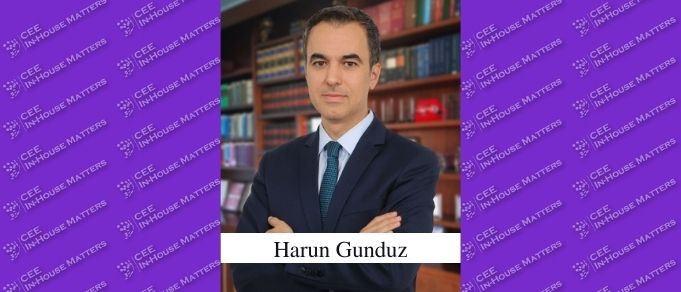On August 11, 2021, CEE Legal Matters reported that BTS & Partners had advised 500 Startups and Qnbeyond Ventures on its investment in Ango AI. CEE In-House Matters spoke with Enis Hulli, General Partner at 500 Startups, to learn more about the deal.
Turkey: Share Transfer Restriction Options
Transfer of shares to a third party may cause harm to the existing shareholders and create undesired consequences for them. For example, share transfer may result in the entry of an undesired third party into the entity as a shareholder. Therefore, shareholders may require strict measures to be taken for protecting the corporate structure of the entity, preventing the entry of undesired third party to the entity, preventing deadlock when reaching a decision, preventing the sale of company’s shares to its competitors, protecting the rights of the minority shareholders, etc.
Turkey’s Personal Data Authority Published its Announcement on Processing of PCR Test Results and Vaccination Information in Combatting Corona Virus
The Personal Data Protection Authority [“Authority”] has published a public announcement on September 28, 2021, with respect to the collection and processing of PCR test results and information regarding vaccination status being shared with third parties to mitigate potential health risks during pandemic.
Turkish Law of Inheritance Series I.: Right of Inheritance, Statutory Heirs, Testamentary Heirs and Beneficiaries
Following the death of a person, the fate of the wealth they created throughout their life, and how to ensure the continuity of this value is a common concern shared by many people. In Turkish law, these matters are regulated in the "Inheritance Law" book, which is the third book of the Turkish Civil Code No. 4721. In the first of our series of articles, in which we will examine the law of inheritance through various topics of interest, we will discuss the concept of inheritance and heirdom. In following articles, we will touch on the frequently asked questions regarding the law of inheritance.
Ekin Inal Joins IFC as Legal Counsel in Turkey
Former Inal Unver Attorney Partnership Partner Ekin Inal has joined the International Finance Corporation as a Legal Counsel in Turkey.
Enforceability of Non-compete Agreements with Employees under Turkish Law
Employees may have access to important and confidential information related to the employer, including the company’s operations, clientele and trade secrets. Use of such information without employer’s knowledge may harm the legitimate interests of the employer. In this respect, an employee should not compete with his/her employer according to the duty of fidelity during the term of the employment agreement. As this is a statutory duty imposed on the employee, there is no need for such non-compete obligation to be explicitly set out in the employment agreement.
Turkish Constitutional Court Ruled that the Decision of Non-Jurisdiction Adopted After 7 Years Based on the Arbitration Clause Does Not Violate Right to Property
In its decision dated June 8, 2021, and numbered 2018/5832, the Turkish Constitutional Court [the “Court”] ruled that the dismissal of the case in terms of non-jurisdiction nearly after seven years on the ground of the arbitration clause does not violate the right to property.
Former Turkish Competition Authority Chief Legal Counsel Join ELIG
Former Turkish Competition Authority Chief Legal Counsel Harun Gunduz has moved into private practice by joining ELIG Gurkaynak Attorneys-at-Law.
WhatsApp Has Been Slapped with Record Fine by Turkey’s Data Protection Authority
As known, several months ago, Whatsapp Inc. had informed its users about the update on the terms of use and privacy policy and announced that “the users must consent to their WhatsApp data being shared with Facebook companies in order to continue using WhatsApp, otherwise as of February 8, 2021 they will not be able to use WhatsApp”. This update stirred a huge debate among users, and millions stopped using the app. That being said, on January 12, 2021, the Personal Data Protection Authority [“Authority”] initiated an ex officio investigation as to whether WhatsApp infringed Article 15 of Turkish Personal Data Protection Law No. 6698 [“Law No.6698”].
Debt Collection Series-4: Collection of Debts from Bankrupt Entities in Turkey
In the ordinary course of commercial life, “bankruptcy” may be inevitable for financially distressed companies. In such case, the question arises with respect to the status of receivables from the bankrupt entity and how they will be collected.
Coca-Cola Turkey GC Ece Sarica Appointed to Regional Role in UK
Former Coca-Cola Operations Legal Counsel and Local Ethics Officer for the Turkey Region Ece Sarica has been appointed to IP Counsel, Europe at Coca-Cola GB in London.
Deal 5: Tarentum Managing Partner Bora Tokyay on USD 1.4 Million Investment
On June 1, 2021, CEE Legal Matters reported that the Ozbek law firm had advised Tarentum on Bogazici's Ventures investment of USD 1.4 million into Tarentum, a developer of machine learning and artificial intelligence technology solutions. CEE In-House Matters spoke with Bora Tokyay, Managing Director at Tarentum, to learn more about the matter.
Turkey: Data Transfers in M&A Transactions
With the introduction of Turkish Data Protection Law No. 6698 (the KVKK) back in 2016, data privacy has become an important aspect of M&A transactions and due diligence processes. Concerned about the potential administrative fines under the law and the strict scrutiny of the Turkish Data Protection Authority (DPA), buyers started to place greater importance on the compliance of target companies’ privacy practices with the law.
Turkish Constitutional Court Ruled that Prolonged Preliminary Injunction Violates Right to Property
On April 13, 2021, Turkish Constitutional Court [the “Court”] ruled that the applicant's right to property is violated because his assets have been restricted by a preliminary injunction for 15 years. The judgement emphasized that for a preliminary injunction restricting right to property to be deemed proportionate, proportionality should be established in terms of both the scope and the duration of the injunction.
Turkey’s First National Artificial Intelligence Strategy (2021-2025) Has Been Published
The National Artificial Intelligence Strategy [“the Strategy”] which was recently announced via a Circular, was unveiled on 24.08.2021 and published by the Digital Transformation Office of the Presidency of the Republic of Turkey [“DTO”].
Deal Expanded: Interview with Kabine Law Office on 2020 DOTY for Turkey
Kabine Law Office’s Tuvan Yalim, Gulce Keskin, and Ozgecan Korkmaz Talk About The Deal of the Year in Turkey.
Board Members Liability Insurance [D&O Insurance] in Turkey
The Board of Directors ["Board"] is the main management body of a joint stock corporation. Accordingly, the Board members have extensive management and representation duties. Given that such broad duties inherently carry the same level of liability risk, legal liability of the Board members has always been a critical topic. [For detailed information on the legal liability of Board members and the liability lawsuit you can refer to our article: “Legal Liability of Board of Directors Members”]. The Board, as the representative and administrative authority, must be able to support the corporation in reaching the intended goal, fulfill the management duties without hesitation, and take independent decisions. Therefore, considering the magnitude of the liability risk, a warranty mechanism –insurance– to balance the increasing liability of the Board has been discussed for many years as an indispensable element in liability cases. Today, the "Board of Directors’ Liability Insurance" [“Board Members Liability Insurance”] has already become as a widely used insurance type throughout the world, from United States to England and Continental Europe to Germany, Japan and Turkey. Issuance of this easily accessible insurance policy provides a significant assurance for the Board members.
The Nature of the Legal Relationship Between the Board of Directors Member and the Corporation in Turkish Law
The relationship between a joint stock corporation and its board of directors ["Board"] is established by the acceptance of duty by the Board member, who is elected by the general assembly of shareholders or exceptionally by the Board. As a result, a contractual relationship is established between the corporation and the Board member.







































